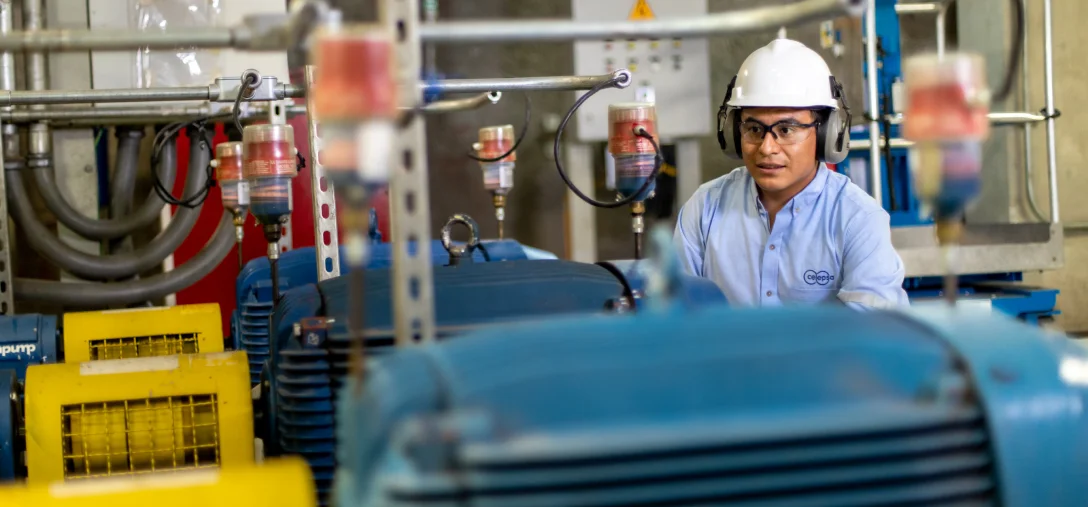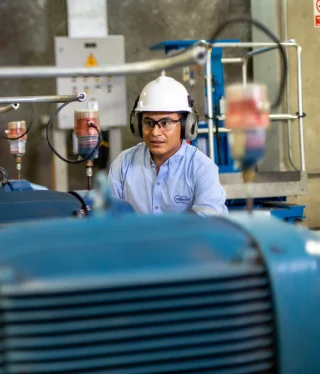News
28 Apr 2024
World Day for Safety and Health at Work: Workplace strategies to cope with the impact of climate change


The increase in extreme temperatures, severe weather events and water scarcity have a significant impact on the world of work, particularly affecting the safety and health of workers. Our country is one of the most exposed and more vulnerable to natural disasters than most structurally comparable countries, annually disasters cause on average losses of more than USD 40 million, according to the World Bank Group's Country Climate and Development Report.
"These weather patterns continue to increase each year, so action needs to be taken against the risk of occupational accidents and illnesses. Proactive measures involve comprehensively assessing climate risks in operations and supply chains," mentions Katia Arista, Head of Occupational Health and Safety at Hydro and Wind Power Plants.
The country's growth is driven by its natural capital, which leaves us vulnerable to climate change. This is partly due to the frequency with which natural disasters occur due to the geographic concentration of population, assets and property in high-risk areas. It is very important that companies adapt strategies for these scenarios and protect their workers.
In addition, they make it possible to protect the company's assets, which can range from the development of technical guidelines to the training and awareness-raising of workers.
In the framework of the International Day for Safety and Health at Work, Katia Arista mentions five of these, related to the main repercussions:
- Excessive heat: 2023 was the hottest year in decades, this trend of increasing summer temperatures has become evident and puts the health and performance of workers at risk, especially those who perform outdoor work in demanding jobs. In view of this, it is crucial to regulate the environmental conditions of the workplace in terms of temperature and ventilation, exposure times, as well as to provide adequate protective clothing and/or equipment.
- High UV radiation: Excessive exposure to UV radiation can cause sunburn, skin cancer and other diseases in outdoor workers. Limiting exposure to the sun at peak hours, training on UV radiation risks, as well as providing shaded areas, sun protection and the necessary personal protective equipment are some actions that should be promoted.
- Increase in meteorological phenomena: Meteorological phenomena such as floods, droughts, forest fires, among others, increase the risk of industrial accidents, such as chemical leaks, fires or explosions. It is necessary to develop plans in the workplace to respond to this type of emergency and to remain vigilant in the event of possible changes. The guarantee of workplaces that ensure safe and healthy conditions for people is part of the commitment of every company.
- Air pollution: Air pollution in the workplace can cause respiratory diseases, cardiovascular diseases, among others, especially in those workers in urban areas, transportation or located near sources of pollution. Climate change can alter indoor air pollutant concentrations, so it is important to ensure good air quality in the workplace, and to ensure it through regular monitoring.
- Vector-borne diseases: These are diseases caused by parasites, viruses and bacteria that are transmitted by vectors such as mosquitoes, fleas and ticks. Climate change along with increased high temperatures has created more favorable conditions for the spread of diseases such as dengue, malaria and chikungunya. A priority will be to integrate the company's occupational health and safety initiatives into the country's health programs and campaigns.
"As companies we are committed to adapting to constant environmental changes through strategies that allow us to prevent and improve the well-being of workers. At Celepsa, we have the corporate safety program: Life First, under which we continue to work to mitigate risks such as these with the firm commitment to prioritize life over any other business aspect," added Arista.
